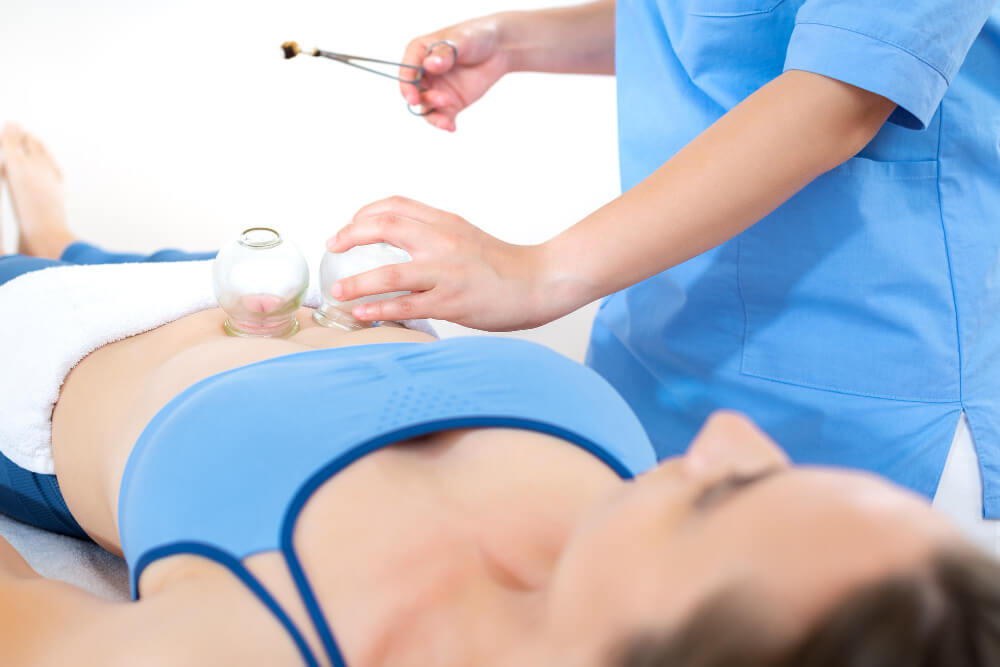How Acupuncture Could Help Support the Endometrial Lining…
Acupuncture is increasingly used as a complementary therapy to support a healthy endometrial lining—an essential factor for successful embryo implantation during natural conception and IVF. A thick, well-nourished, and receptive endometrial lining provides the optimal environment for a fertilised egg to implant and grow.
Acupuncture could help promote endometrial health through several key mechanisms:
- Enhancing Blood Flow to the Uterus
❤︎ Improved Circulation:
Acupuncture may help increase blood flow to the uterus, delivering essential nutrients and oxygen needed for the development of a healthy endometrial lining. Improved circulation supports cell growth and the thickening of the endometrium during the menstrual cycle.
❤︎ Supporting Endometrial Growth:
Stronger blood flow encourages a thicker, more vascularised lining during the luteal phase (post-ovulation), creating a more favourable environment for embryo implantation.
- Regulating Hormonal Balance
❤︎ Promoting Progesterone Production:
After ovulation, sufficient progesterone is necessary to prepare the uterine lining for implantation. Acupuncture could help balance hormone levels, supporting optimal progesterone production.
❤︎ Balancing Estrogen Levels:
Estrogen plays a key role in building the endometrial lining during the follicular phase (pre-ovulation). Acupuncture may help regulate estrogen levels, encouraging proper growth and preventing thin lining issues.
❤︎ Supporting the Hypothalamic-Pituitary-Ovarian (HPO) Axis:
Acupuncture could assist in balancing the HPO axis—the body’s hormonal control centre for reproduction—thereby promoting a more regular menstrual cycle and healthier endometrial development.
- Reducing Stress and Enhancing Relaxation
❤︎ Managing Stress for Fertility:
High stress levels can negatively impact hormonal balance and blood flow to the uterus. Acupuncture is well known for its ability to reduce stress by regulating the autonomic nervous system, helping to create a more fertile internal environment.
❤︎ Balancing Cortisol Levels:
By lowering cortisol (the primary stress hormone), acupuncture may improve menstrual regularity, hormonal health, and endometrial thickness.
- Supporting Ovarian Function
❤︎ Enhancing Egg Health and Hormone Production:
Acupuncture could support ovarian function, which indirectly benefits the endometrial lining by promoting the production of healthy eggs and balanced levels of estrogen and progesterone.
- Improving Endometrial Receptivity During IVF
❤︎ Optimising the Uterine Environment:
For women undergoing IVF, acupuncture could help improve endometrial receptivity by boosting blood flow to the uterus and regulating key reproductive hormones.
❤︎ Supporting Embryo Implantation:
Research suggests that acupuncture performed before and after embryo transfer may improve implantation rates and overall IVF outcomes by enhancing the quality and thickness of the endometrium.
- Moxibustion to Support the Endometrial Lining
❤︎ Warming the Uterus:
Moxibustion—a traditional therapy involving the warming of specific acupuncture points—can be used alongside acupuncture to improve circulation in the pelvic region. This technique is particularly beneficial for women with a “cold” or “deficient” uterine environment, supporting thicker and more receptive endometrial lining development.
- Recommended Timing for Acupuncture
Acupuncture treatments are most effective when timed with specific phases of the menstrual cycle:
❤︎ Follicular Phase (Pre-Ovulation):
Focused on improving uterine blood flow and promoting endometrial growth.
❤︎ Luteal Phase (Post-Ovulation):
Aimed at maintaining a thick, healthy lining and supporting progesterone production.
❤︎ Before and After IVF Embryo Transfer:
Designed to optimise the uterine environment and enhance implantation success rates.
Conclusion
Acupuncture could be a valuable addition to your fertility journey by supporting the development of a healthy endometrial lining, enhancing hormone regulation, improving uterine blood flow, reducing stress, and optimising conditions for implantation. Whether you are trying to conceive naturally or undergoing fertility treatments such as IVF, acupuncture offers a holistic approach to promoting reproductive wellness

